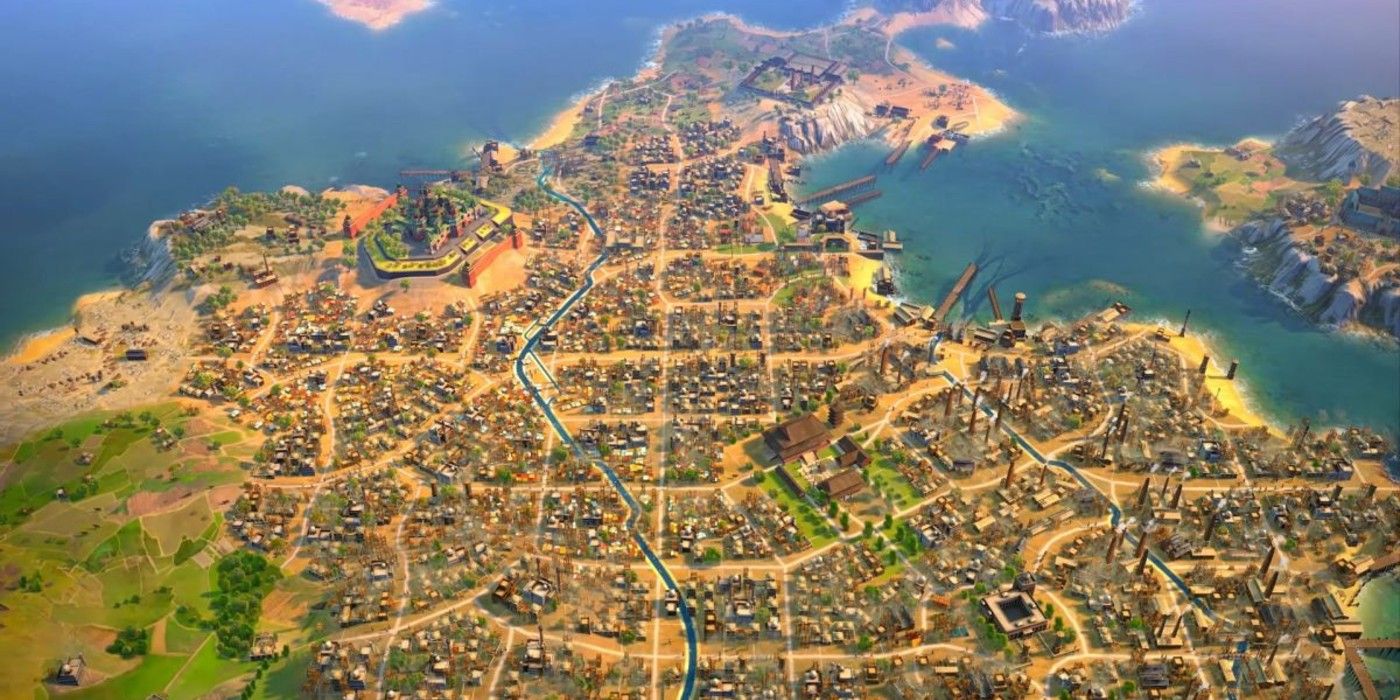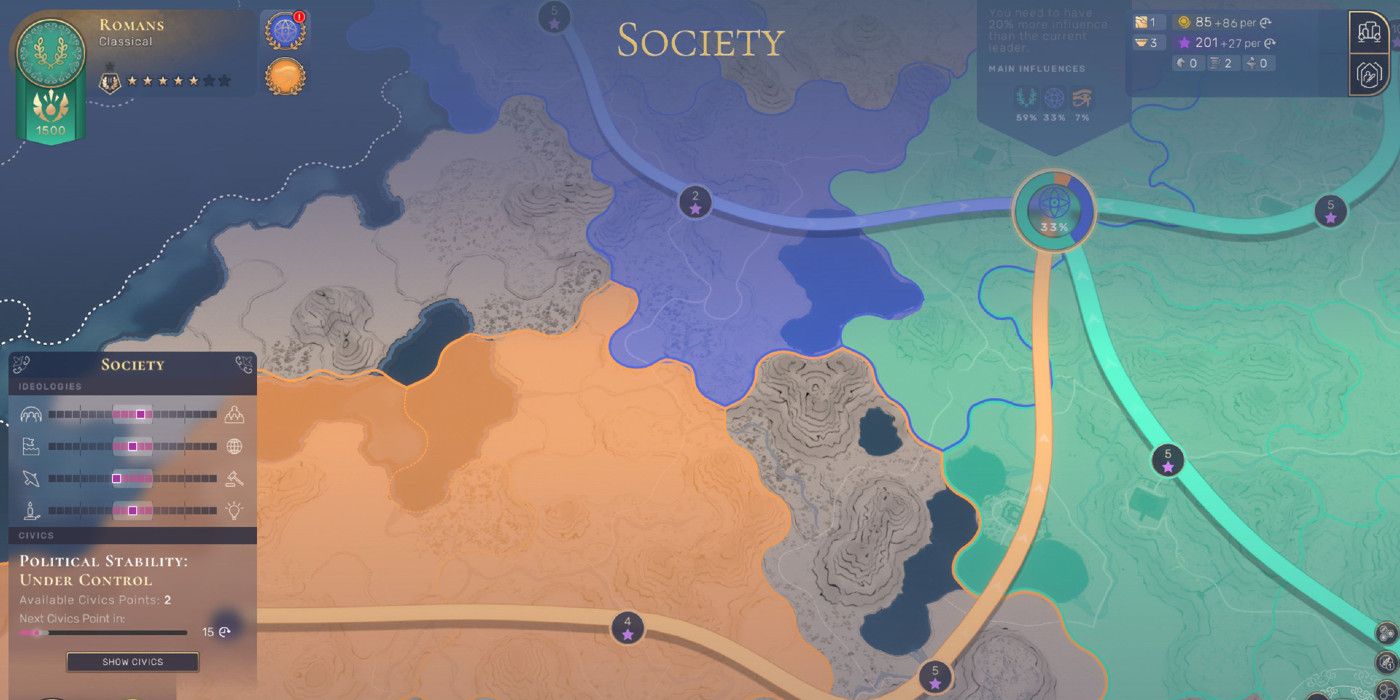Like most 4X games, Humankind is a game about influence. Players invest in military might, technological advancement, and cultural enrichment to expand their territory and compete with their neighbors.
In Humankind, however, influence isn't just an abstract concept. It's a tangible resource, like population and food, represented by purple stars. Players have to spend influence to expand their cities or enact new civic policy. And if a nearby opposing empire has more influence points, they can alter the cities' civics as well.
There are two ways to generate influence. Both are relatively simple, but they are mutually exclusive to each other.
Neolithic Influence
A game of Humankind will move across several eras of human history. The first era is always the neolithic era, where the player takes control of a nomadic tribe. Here, players can increase their influence via exploration and hunting.
Dotted throughout the maps are glowing "curiosity" points. The player can send a unit to investigate them, and if it's an ancient encampment, they will get 5 influence points and one science point.
Alongside the curiosity points are animals, and the player can send a unit to hunt them. This will give influence and food points, with more dangerous animals giving more points. But this puts the units at risk, and must be done carefully.
Influence in The Ancient Era and Beyond
Once the player leaves the neolithic era, the above actions will no longer give influence points. From here on, players will generate influence by building cities.
The more populous a city is, the more influence it will generate per turn. But this can be dampened by the city's stability. A city at 91-100% stability will generate two influence per population point, a city at 30%-90% stability will generate one influence per population point, and a city at 0-29% stability will not generate influence.
Players shouldn't build cities recklessly, as they have to deal with Humankind's city cap. If a player exceeds the cap, the extra cities will start costing influence, which is counterintuitive to this goal. Players should only exceed the cap if they are desperate for other resources a city can produce, such as food and industry, and have a surplus of influence to gamble with.
Players can also augment a city's influence generation by building districts like holy sites, theaters, and nature reserves. They can also boost influence with religious tenets, like the "steal not" or "be charitable" tenet.
Humankind is available now for PC and Stadia.


